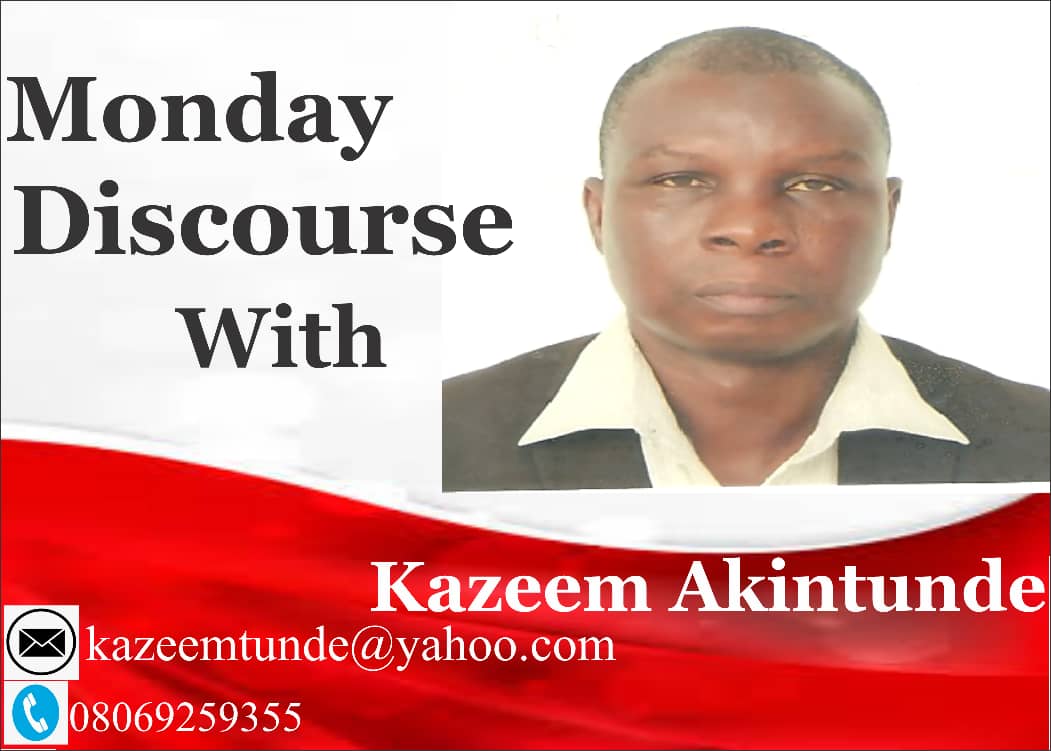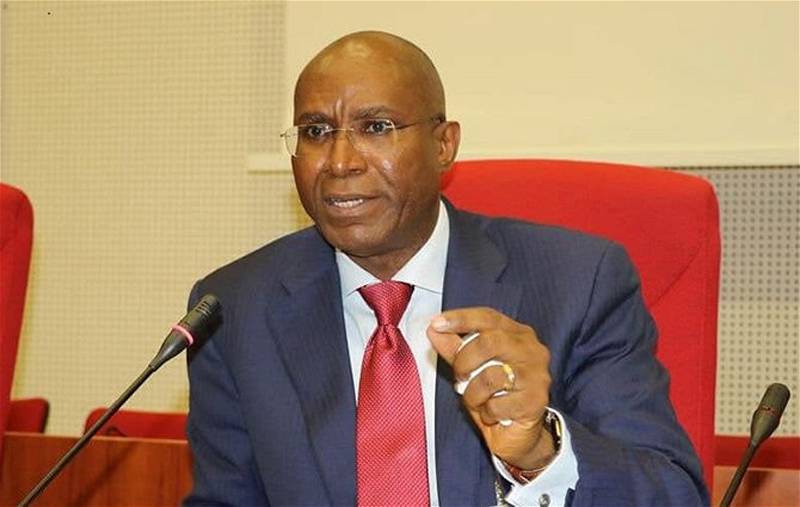2023 Presidential Ticket: PDP And South East Agitation
By Kazeem Akintunde
Since the return to democratic rule in 1999, the five states in the southeast (Abia, Enugu, Anambra Ebonyi and Imo States) have been very loyal and consistent to the People’s Democratic Party, PDP. Though on few occasions, the regional party, the All Progressives Grand Alliance, APGA, sprang surprises, party leaders from the South-east always ensured that they delivered block votes to the then ruling party between 1999 and 2015 when the PDP was at the helm of affairs in the country, believing that a day would come when their loyalty would be rewarded and acknowledged. For the 16 year period that the party was in power, the highest office the southeast got has been head of the Legislative House, particularly the senate.
During the eight-year tenure of President Olusegun Obasanjo, (a Yoruba man from the southwest), Atiku Abubakar, (from Adamawa State) was his vice while the Senate President was zoned to the South East. Within the eight-year period, the region gave us five senate presidents as there was one reason or the other to make a change. President Obasanjo started with Evan Enwerem, then Chuba Okadigbo came on board, moved to Anyim Pius Anyim, worked with Adolphus Wabara before ending with Ken Nnamani.
At the end of Obasanjo’s tenure in 2007, Umaru Yar’Adua became the President and Goodluck Jonathan, (from Bayelsa State in South-South), his Vice. David Mark, a retired military general from Benue State (North Central) became the Senate President. When Yar’adua died and Jonathan became acting President and eventually the number one citizen, Namadi Sambo from Kaduna State became his Vice. The southeast was not even in the top three positions as Mark from North Central retained the Senate President seat.
With the All Progressive Congress, APC taking over political power in 2015 through Muhammadu Buhari who became President, Professor Yemi Osinbajo,(SAN), from Ogun State was picked as his Vice while Bukola Saraki from North Central emerged Senate President. In 2019, Buhari and Osinbajo maintained their number one and two positions while the Senate Presidency returned to the North with the emergence of Ahmed Lawan from Yobe state.
The clamour for a President from the South East has gained traction in the last few years with calls on other regions to allow the South East to produce the next president for fairness, equity and for them to have a sense of belonging. The agitation, however, assumed a dangerous dimension few years ago due to the activities of ‘unknown gunmen’ that embarked on a killing spree of perceived antagonists and haters of the struggle in the region. The utterances of the leader of the Indigenous People of Biafra, IPOB, Nnamdi Kanu describing Nigeria as a zoo and calling for the breakup of the country has also not endowed the region to other sections of the country. Kanu is presently having his days in court. But truth be told, the southeast should be carried along in the running of Nigeria and one way we can do that is to allow our brothers and sisters from the land of the rising sun to occupy the highest office in the land. Due to their numerical disadvantage, politicians from the region have been agitating for the zoning of the 2023 presidential ticket to the south-east. Although the concept of zoning electoral positions by political parties is not expressly captured in the 1999 Constitution (as amended), it is in tandem with the Federal Character Principle, as enshrined in its Third Schedule, as a way of promoting equity, justice and fair play, and giving every constituent of the Nigerian society a sense of belonging. Zoning or Power Shift is a veritable instrument for protecting the equality of citizens’ rights and guards against the marginalisation of ethnic minorities. It ensures societal harmony through the equitable devolution of powers and allocation of resources.
Already, the PDP has set up a committee headed by the Governor of Benue State to work out the zoning of offices for the coming polls. It is a known fact, however, that the presidency is not likely to be zoned to the South East. What the PDP is most likely to do is to throw the door open for any aspirant interested in the Presidency to contest. This is where the south-east will lose out again. It does not have the number and political maturity to get the presidential ticket of the PDP.
Already, three prominent sons of that region, Anyim Pius Anyim, a former Senate President and Secretary to the Government of the Federation, Sam Ohabunwa, a Pharmacist as well as Peter Obi, a former Governor of Anambra State have thrown their hats into the ring to vie for the highest office in the land. The question is will they eventually get the ticket of the PDP? Your guess is as good as mine but if we are to be realistic, the chances of the trio in picking the PDP ticket, on a scale of 10 is less than four. And this is due to the fact that political parties, particularly the big ones, are very serious when it comes to winning elections in Nigeria. And to win elections in Nigeria, little regard is given to morality. There are a whole lot of issues to be considered by the parties. In the first instance, Anyim and Obi as well as Ohabunwa are not heavyweight politicians in the real sense of the word, known all over the country and can guarantee votes for their political party- the PDP across the country. An Anyim versus a Bola Tinubu for instance in the APC, will, most likely, be a complete work-over. The same thing is likely to happen in the case of a Tinubu versus a Peter Obi in a presidential contest.
Agreed that Obi will, in all honesty, make a better Presidential material but can he garner the required number of votes to defeat a Tinubu? While the duo would definitely garner enough votes and support from the southeast region, can such votes come from the North and the South West? How deep are their pockets to withstand the kind of money politics that is in operation in Nigeria of today? Can a Peter Obi or Anyim galvanize the North and other regions to guarantee that the PDP will return to power come 2023?
In the ruling APC, it is a known fact that the party is not even looking in the direction of the southeast to produce the next President and I don’t blame them for this. Since the return to democratic rule in 1999, the region has always treated the party with disdain to the extent that different names have been coined in the region for the ruling party. It is either a Boko Haram Party or a party with the sole agenda of Islamizing the whole of the country. Take a look at the figures from the last presidential election from the five states in the region as declared by INEC. In Abia State, the PDP secured 219,698 votes, its rival the APC scored 85,058 votes. In Enugu, PDP scored 355,553 and APC 54,423 votes. In Ebonyi, PDP 258,573 and APC 90,726 votes. In Anambra State PDP 524,738 and APC 33,293 votes and Imo state PDP 334,923 and APC 140,463 votes. The region voted massively for the PDP due to the fact that one of its own; Peter Obi, was running in the election as Vice Presidential candidate of the PDP. It was the same scenario when Obasanjo was running on the ticket of the PDP.
What is most likely to happen is for either Anyim or Obi to emerge as a Vice Presidential candidate to a Presidential candidate of Northern extraction, the same scenario that played out when Peter Obi was the Vice Presidential candidate to Atiku Abubakar during the 2019 Presidential poll. Anyim, while declaring his aspiration, recongnises the fact that there could be some hurdles ahead when he said that he will contest whether the presidency is zoned to the Southeast or not. ‘If the presidency is zoned to the South-East, it will satisfy the just demand for equity and fairness. If it is not zoned to the South-East, it will remain a burden on the conscience of the nation.”
Again, speaking on the chances of the South-East zone on producing the next President, the Chairman, Alaigbo Development Foundation, Abia Onyike, said, “It does not really depend on what the Igbos do or what they will say, it all depends on the kingmakers of Nigerian politics to decide whether to give it a try or not. The Igbo can consult, lobby and reach out to other power blocks on their quest for the Nigerian presidency, but it depends on the inclination of the Nigerian kingmakers to take up the issue for its actualisation or to vehemently oppose it.”
Should the region build a strong political party like APGA to national prominence to challenge the PDP and APC for the plum office? It is doable but it will still have to work with other regions to realize their ambition. That is why the number one priority of the south-east and other ethnic minorities is to demand for the restructuring of the country from whomever comes to ask for their votes. Without that, they will continue to play second fiddle in Nigerian politics. The North has the size and the number to continue to dominate other regions as Nigeria is presently structured.
See you next week.




